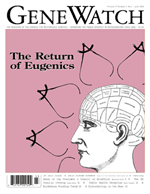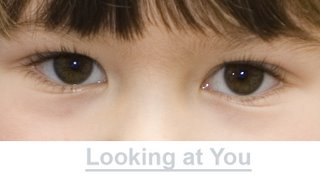Values and Reason
What's on my mind: As usual, beauty (as in human spirit), justice, dissention and this recent reponse to The Ashley Treatment by Peter Singer, ethicist from Princeton University:
What matters in Ashley’s life is that she should not suffer, and that she should be able to enjoy whatever she is capable of enjoying....In any case, the “best interest” principle is the right test to use, and there is no reason that other parents of children with intellectual disabilities as profound as Ashley’s should not have access to similar treatments, if they will also be in the interest of their children. If there is a slippery slope here, the much more widespread use of drugs in “problem” children who are diagnosed as having attention deficit hyperactivity disorder poses a far greater risk than attenuating growth in a small number of profoundly disabled children." (NY Times Op. Ed, Peter Singer, January 26, 2007).
Imposing assumptions on the state of mind of others is a value judgment (one with bias). Assumptions that another person does not understand what is happening to them is prejudice. Valuing one type of life more than another is also prejudice. Remember: prejudice is a different set of standards which we apply to one set of people over another. Throughout history, "behavioural phenotypes," have given rise to bias about people who display different behaviours:
"A behaviour phenotype is a characteristic pattern of motor, cognitive, linguistic and social abnormalities which is consistently associated with a biological disorder. In some cases, the behavioural phenotype may constitute a psychiatric disorder, in others, behaviours which are not usually regarded as symptoms of psychiatric disorders may occur." (Flint and Yule, 1994)
Throughout the Journal of Applied Behavioral Analysis is an abundance of biased language: aberrant, stereotypy, and more. If we scrutinize every pattern of behaviour and classify it, we run the risk of creating aberrance, where there is none.
But I thank God for one thing: the freedom of us all to discuss all of these issues, the drive of parents to accept nothing but the best for their children -- there was a day when society really didn't accept any disabled person, when parents had little hope. Today, parents will not accept that. They expect their children to attend schools, receive an education, and obtain accomodations. Despite virulent disagreements over the ethics of "treatment" versus accomodations for autistic children, I still have faith that we're moving forward, with one caveat: always keep your eyes open...
Here is some dialogue from the movie Sophie Scholl: The Last Days. She and her brother were the leaders of the White Rose movement which was a resistance movement in Nazi Germany. The setting is in the interrogator's office discussing her ideals against his Nazi ones:
Sophie: “The other children asked where they were going. ‘They’re going to heaven,’ said the nurse. So the children got on the truck singing. You think I wasn’t raised right, because I feel pity for them?”
Interrogator: “These are unworthy lives. You trained to be a nurse. You saw people who were ment ally ill.”
ally ill.”
Sophie: “Yes. That’s why I know. No one, regardless of circumstances can pass divine judgement. No one knows what goes on in the minds of the mentally ill. No one knows how much wisdom can come from suffering. Every life is precious.” [bold mine]
Perhaps we need to revisit history, our older concepts of ethics to find a new shared ethics that befit the unprecedented ethical issues of our time. What are our shared values that unite us in humanity and responsibility for others. Perhaps we need not only go back to history, but our songs, our stories, our art -- that which truly makes us human.
At the basis of the Ashley argument, we cannot assume that Ashley is "suffering." This is a big problem with disabiltiy itself -- that because a person is disabled, the rest of society views that as a terrible state -- that the disabled person in question must be suffering. Even if, what does it mean to suffer? Isn't suffering part of existence? We can learn by listening to the disabled communtiy and their response on this. And, it is our obligation to do so.
I aruged in my last post, that in the absence of truly knowing or understanding, we must presume sentience. A recent visit to a Montessori school, and I reviewed Maria Montessori's mantra: "Every child is born intelligent but learns at a different pace."

Click here to listen to "The Riddle"(the video ain't great, but it's better than having the song on autoplay everytime you click into this blog, which is what was happening.)
What matters in Ashley’s life is that she should not suffer, and that she should be able to enjoy whatever she is capable of enjoying....In any case, the “best interest” principle is the right test to use, and there is no reason that other parents of children with intellectual disabilities as profound as Ashley’s should not have access to similar treatments, if they will also be in the interest of their children. If there is a slippery slope here, the much more widespread use of drugs in “problem” children who are diagnosed as having attention deficit hyperactivity disorder poses a far greater risk than attenuating growth in a small number of profoundly disabled children." (NY Times Op. Ed, Peter Singer, January 26, 2007).
Imposing assumptions on the state of mind of others is a value judgment (one with bias). Assumptions that another person does not understand what is happening to them is prejudice. Valuing one type of life more than another is also prejudice. Remember: prejudice is a different set of standards which we apply to one set of people over another. Throughout history, "behavioural phenotypes," have given rise to bias about people who display different behaviours:
"A behaviour phenotype is a characteristic pattern of motor, cognitive, linguistic and social abnormalities which is consistently associated with a biological disorder. In some cases, the behavioural phenotype may constitute a psychiatric disorder, in others, behaviours which are not usually regarded as symptoms of psychiatric disorders may occur." (Flint and Yule, 1994)
Throughout the Journal of Applied Behavioral Analysis is an abundance of biased language: aberrant, stereotypy, and more. If we scrutinize every pattern of behaviour and classify it, we run the risk of creating aberrance, where there is none.
But I thank God for one thing: the freedom of us all to discuss all of these issues, the drive of parents to accept nothing but the best for their children -- there was a day when society really didn't accept any disabled person, when parents had little hope. Today, parents will not accept that. They expect their children to attend schools, receive an education, and obtain accomodations. Despite virulent disagreements over the ethics of "treatment" versus accomodations for autistic children, I still have faith that we're moving forward, with one caveat: always keep your eyes open...
Here is some dialogue from the movie Sophie Scholl: The Last Days. She and her brother were the leaders of the White Rose movement which was a resistance movement in Nazi Germany. The setting is in the interrogator's office discussing her ideals against his Nazi ones:
Sophie: “The other children asked where they were going. ‘They’re going to heaven,’ said the nurse. So the children got on the truck singing. You think I wasn’t raised right, because I feel pity for them?”
Interrogator: “These are unworthy lives. You trained to be a nurse. You saw people who were ment
 ally ill.”
ally ill.”Sophie: “Yes. That’s why I know. No one, regardless of circumstances can pass divine judgement. No one knows what goes on in the minds of the mentally ill. No one knows how much wisdom can come from suffering. Every life is precious.” [bold mine]
Perhaps we need to revisit history, our older concepts of ethics to find a new shared ethics that befit the unprecedented ethical issues of our time. What are our shared values that unite us in humanity and responsibility for others. Perhaps we need not only go back to history, but our songs, our stories, our art -- that which truly makes us human.
At the basis of the Ashley argument, we cannot assume that Ashley is "suffering." This is a big problem with disabiltiy itself -- that because a person is disabled, the rest of society views that as a terrible state -- that the disabled person in question must be suffering. Even if, what does it mean to suffer? Isn't suffering part of existence? We can learn by listening to the disabled communtiy and their response on this. And, it is our obligation to do so.
I aruged in my last post, that in the absence of truly knowing or understanding, we must presume sentience. A recent visit to a Montessori school, and I reviewed Maria Montessori's mantra: "Every child is born intelligent but learns at a different pace."

Click here to listen to "The Riddle"(the video ain't great, but it's better than having the song on autoplay everytime you click into this blog, which is what was happening.)






0 Comments:
Post a Comment
<< Home